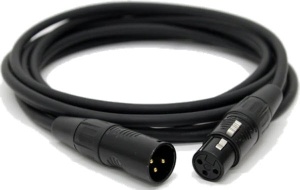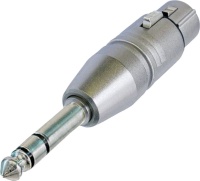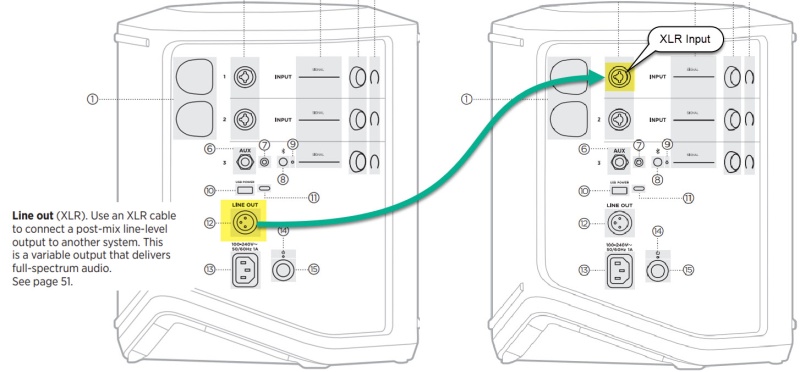S1 Pro+ To L1 Pro
Terms used
- S1 Pro+ (stage monitor and mixer)
- This is the S1 Pro+ to which you have connected your microphone and or instruments using inputs 1, 2, 3
- L1 Pro (main loudspeaker for the audience - Front of House)
- This is the L1 Pro to which you send the sound from S1 Pro
Set Up
- Turn down the volume on the S1 Pro+ system - all channels.
- On the L1 Pro, on input 3 (preferred), turn down the volume - all channels. :If using channels 1 or 2, set the Bass and Treble to 12:00 o'clock and set ToneMatch to Off, and Reverb all the way down.
- Connect the S1 Pro+ Line Out (XLR connection) to L1 Pro Aux Input (input 3). The Aux Input is for line-level sources, and the best match for the line-level output of S1 Pro+.

or use an XLR cable with a converter

Levels
- On S1 Pro+, bring up the channel volumes to the desired levels
- On L1 Pro, bring up channel 3 volume to suit your application. Note: This will not necessarily match the same position on the dials as S1 Pro+
If you connect to channels 1 or 2 instead of 3
- Set Bass and Treble at 12:00 o'clock (flat)
- Set Reverb off (see alternate connection below)
Alternate Connection
You can use an XLR cable (mic cable) from S1 Pro+ 1 to S1 Pro+ 2 channels 1 or 2 (XLR inputs).
XLR Cable
The signal may clip excessively, overload, or be too high to control the volume. To attenuate (reduce) the signal, use a -20 dB or -30 dB Pad
Click image for more information about Pads

